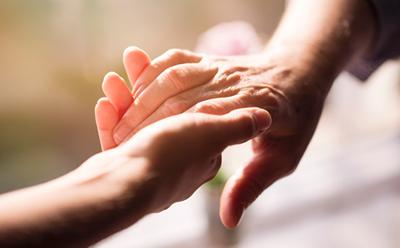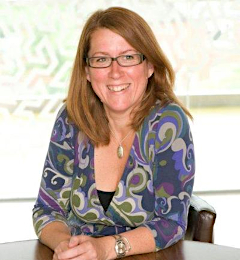Bowel cancer patients without vital social support are twice as likely to have poorer overall health

Bowel cancer patients who lack a key type of social support are more than twice as likely to experience poorer overall health and quality of life, according to new research by the University of Southampton and Macmillan Cancer Support published today in the journal Psycho-Oncology.
Those lacking ‘positive social interaction’, such as having someone to do something enjoyable or relax with, were more likely to face problems. These could include experiencing severe pain, having serious problems with moving around or having difficulty completing simple tasks such as washing and dressing.
The Colorectal Wellbeing (CREW) study, which is following 1,000 people with bowel cancer for five years after surgery, found:
- Those lacking positive social interaction were almost six times more likely to have clinical levels of depression and over four times more likely to have clinical levels of anxiety.
- People who lack affectionate support, such as someone to hug them or show them love, are almost six times more likely to have clinical levels of depression and three times more likely to have clinical levels of anxiety following treatment.
The study looked at how the social support available to people with bowel cancer changed over time and found that the number of people who lacked affectionate support almost trebled from diagnosis to two years later (five per cent vs 13 per cent).
Similarly, the proportion of people with little or no positive social interaction almost doubled from diagnosis to two years later (seven per cent vs 12 per cent). This shows a concerning trend for much-needed support dropping off in the months and years following diagnosis.
Macmillan Cancer Support and the University of Southampton are calling for more rigorous assessments of people’s emotional and social support needs at the point of diagnosis and after treatment. This will enable doctors and nurses to identify those who may be more susceptible to depression or anxiety and ensure they get the support they need.
Hina Patel, 50, from Middlesex was diagnosed with bowel cancer in 2011. She says: “Even though treatment was over I really struggled to come to terms with the feelings of anxiety and emptiness. I didn’t believe I was cured and I didn’t know who or where to turn to.
“It’s so hard to talk about cancer so friends and family tend to pull away because of that. When I had another scare, all my fears came flooding back but I felt I had no option other than keep it all to myself and deal with the loneliness.”
Professor Claire Foster, Chief Investigator of the CREW study from the University of Southampton, said: “It is so important for people to have the help and support they need to manage the consequences of cancer, particularly after their treatment ends.
“Assessment of people’s needs early in the recovery process and then at regular intervals would help identify those most in need. There are vulnerable patient groups such as older people, those living alone and those already experiencing anxiety and depression who are most likely to need additional support.
“People can feel isolated following their treatment and friends, family and communities can have an important part to play in supporting people after treatment. More needs to be done to identify and help people who are struggling in the months and years following cancer treatment.”
Dany Bell, Treatment and Recovery Specialist Advisor for Macmillan Cancer Support, said: “This research shows how vital it is that people with bowel cancer have social interaction with others. Having a friend to go for a coffee with or someone who can join them for a country walk could help people cope with a range of problems, from anxiety and depression to pain and even mobility problems.
“Healthcare professionals often focus on helping patients with their physical health but mental health and wellbeing also needs attention.
“People with bowel cancer often face tough side effects such as incontinence or scarring, which can affect how they feel about themselves. Losing confidence in this way can have a knock-on effect on intimate relationships, making it harder to cope. It’s really important for healthcare teams to talk to patients about the issues they’re facing, because with the right support, many of these problems can be managed and overcome.”
Macmillan Cancer Support provides emotional, practical and financial support to people who have been affected by all types of cancer. This includes a telephone helpline staffed by nurses and an online community where other people in the same situation can share their advice and offer support. It wants to encourage anyone with cancer who is lacking social support or experiencing depression and anxiety to get in touch. Visit macmillan.org.uk or call 0808 808 00 00.
Related Staff Member
Notes for editors
1. Social support following diagnosis and treatment for colorectal cancer and associations with health-related quality of life: results from the UK ColoREctal Wellbeing (CREW) cohort study
Foster. C.L et al
Psycho-Oncology
2. There are 2.5 million people living with cancer in the UK. One in two people are likely to get cancer in their lifetimes. Cancer can affect everything, including a person’s body, relationships and finances.
Macmillan Cancer Support provides practical, emotional and personal support to people affected by cancer every year. The charity is there to support people during treatment, help with work and money worries, and listen when people need to talk about their feelings.
Macmillan receives no government funding and relies on generous donations from the public. People up and down the country show their support for Macmillan – from hosting or attending a World’s Biggest Coffee Morning to running a marathon or giving up alcohol – so the charity can help more and more people affected by cancer every year. Life with cancer is still your life and Macmillan is there to help you live it.
3. The University of Southampton drives original thinking, turns knowledge into action and impact, and creates solutions to the world’s challenges. We are among the top one per cent of institutions globally. Our academics are leaders in their fields, forging links with high-profile international businesses and organisations, and inspiring a 24,000-strong community of exceptional students, from over 135 countries worldwide. Through our high-quality education, the University helps students on a journey of discovery to realise their potential and join our global network of over 200,000 alumni. www.southampton.ac.uk
For further information please contact
Eleanor Wilkinson, Media and PR Officer, Macmillan Cancer Support
Tel: 02070912469 (out of hours 07801 307068)
ewilkinson@macmillan.org.uk
Becky Attwood, Media Relations Officer, University of Southampton
Tel: 02380 593212 Mobile: 07342060429
R.Attwood@soton.ac.uk
